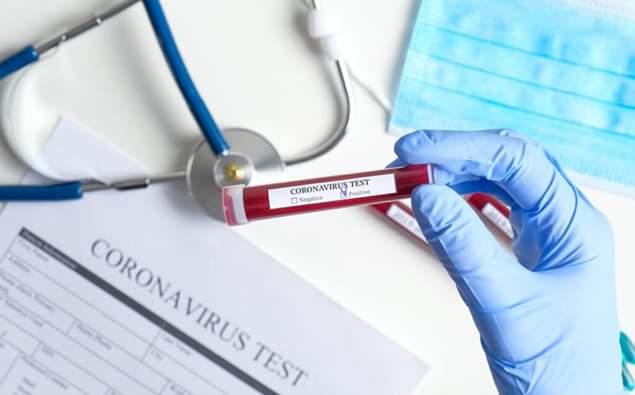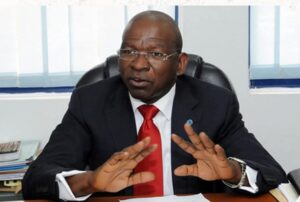
Personnel of the Secretary of Health carry a body bag simulating to have a corpse during an awareness campaign during the novel coronavirus COVID-19 pandemic, in Cucuta, Colombia, on April 6, 2020. – At least 73,139 people have died around the world since the novel coronavirus emerged in China in December, according to an AFP tally compiled around 1900 GMT Monday based on official sources.
The African Development Bank Group says accelerated global health and economic effort are the actions needed to be able to overcome the coronavirus pandemic in the continent.
President of the group, Dr. Akinwumi Adesina said this on Wednesday during a global Corporate Council on Africa via webinar, according to a statement by the bank’s Communications and External Relations Department.
The corporate council on Africa is a leading U.S. business association that promotes business and investment between the U.S. and Africa.
He said that “one death is one too many” just as “our collective humanity is at stake”.
Adesina, therefore, urged U.S. and African government officials as well as corporate executives to forge new and sustainable partnerships that would endure beyond the pandemic.
While urging participants to be their brother’s and sister’s keepers, the AfDB president said there was a compelling need to pay attention to underlying global inequalities, and the impact on rich and poor countries.
Adesina highlighted the bank’s recent issuance of a record-breaking three billion dollars “Fight COVID-19” bond, which he described as the largest-ever U.S. dollar-denominated social bond.
He said the bond was oversubscribed at 4.6 billion dollars and was listed on the London Stock Exchange.
According to him, the bank also inaugurated a 10 billion dollars COVID-19 Response Facility to assist African governments and businesses.
“The bank’s response package includes 5.5 billion dollars earmarked for African governments, 3.1 billion dollars for countries that fall under the bank’s Concessionary African Development Fund, and 1.4 billion dollars for the private sector,” he said.
Answering questions about Africa’s health care system, Adesina said the region needed to do more than double spending in the sector.
He said the acute shortage of facilities and pharmaceutical companies in the continent should offer development and investment opportunities.
According to him, while China is home to 7,000 pharmaceutical companies, and India 11,000, Africa as a whole, by contrast, has only 375, even though its population is roughly equal to half of the combined population of both China and India.
Adesina, therefore, called on multilateral institutions to align and step up their collective efforts with regard to Africa’s debt, manage their ratings, and work together with rating agencies.
He said that although COVID-19 infection rates across Africa were relatively low compared with the rest of the world, there was yet a compelling need to improve on healthcare infrastructure in the continent.
He added that with an eye on the present crisis and beyond, there was a need for urgent, new, and resilient partnerships that would help leave no one behind.
Meanwhile, Florie Liser, President/CEO of the Corporate Council on Africa has lauded AfDB’s proactive leadership role in responding to the crisis in Africa.
According to Liser, the coronavirus pandemic is threatening to erase Africa’s unprecedented growth and economic gains over the past decade.












